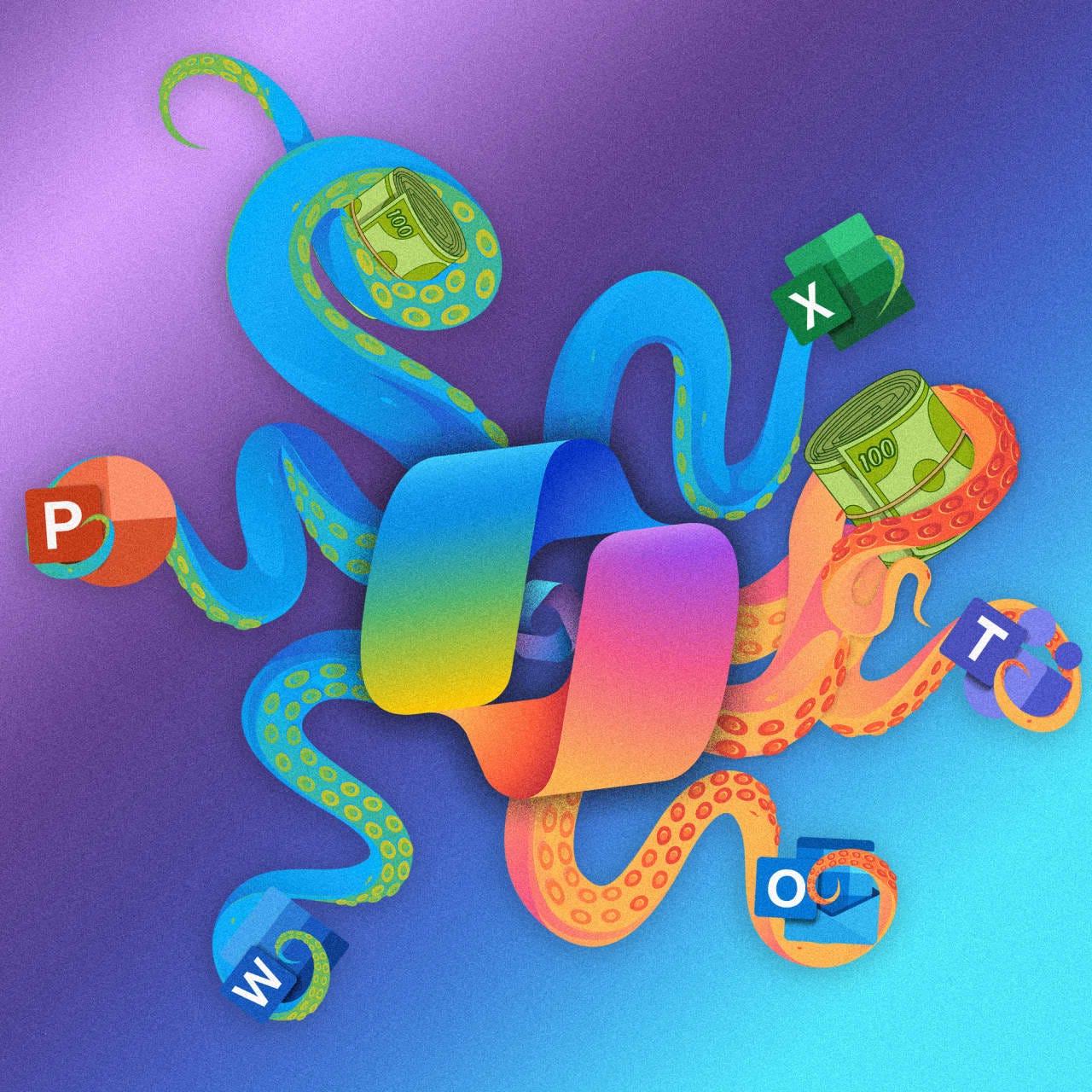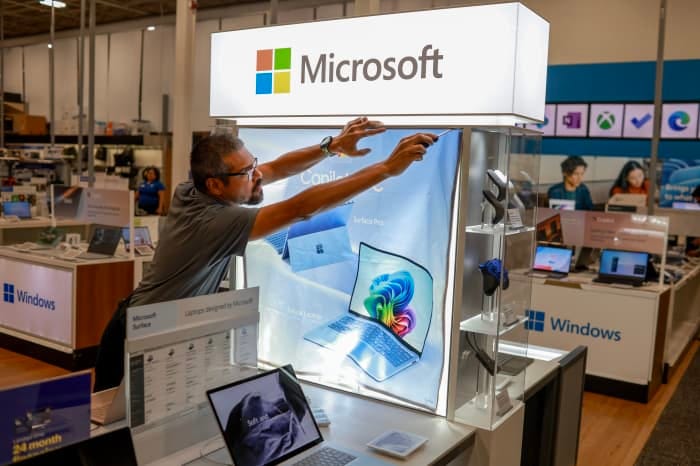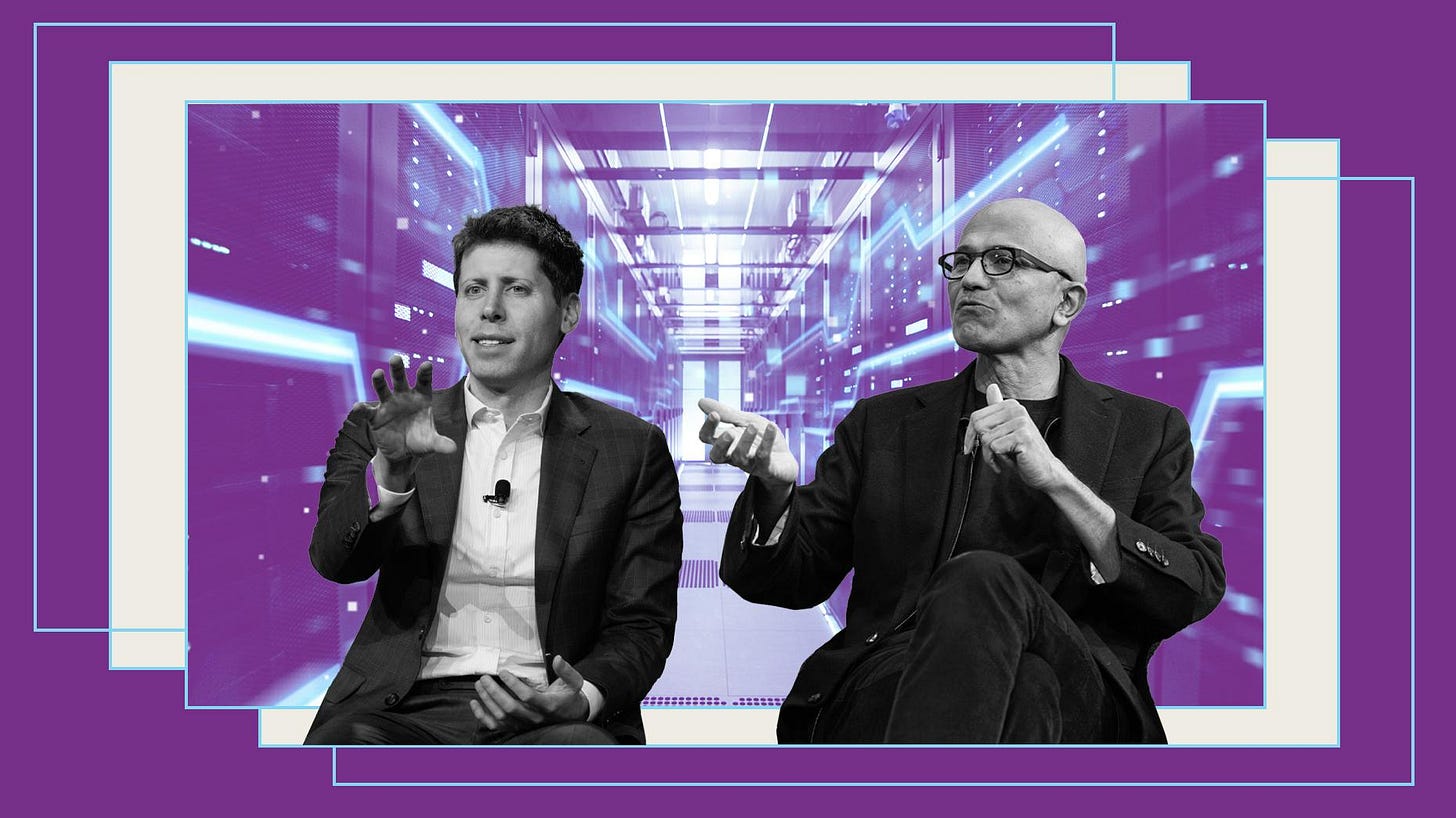AI: Here come Add-on AI features and pricing, ready or not. RTZ #589
...bundling AI into existing offerings a key feature in 2025
In a post last March titled “Selling AI before it’s time”, subtitled “long before it’s really, ready, for a long time”, I highlighted the tech industry’s habit to sell new stuff at high prices, before its benefits are clear to end users. And many times before the products are out from their ‘beta’ pre-baked phase.
From enterprise software, to auto driving cars, to device subscriptions, software and related products have always been sold to early adopters, before their time.
A WSJ piece “Microsoft Is Forcing Its AI Assistant on People—and Making Them Pay” underlines this point to keep in mind for 2025 in this AI Tech Wave:
“The tech company has made Copilot part of its 365 subscription service in several markets and raised prices”.
“Microsoft is trying a new approach to build excitement for its artificial-intelligence assistant Copilot: Give it to customers whether they want it or not.”
“The tech company recently added Copilot to its consumer subscription service for software including Word, Excel and PowerPoint in Australia and several Southeast Asian countries. Along with the AI feature, it raised prices for everyone who uses the service, called Microsoft 365, in those countries.”
“What about people who don’t want to pay for an AI assistant to spruce up their documents and summarize emails? They are out of luck.”
“The change demonstrates the lengths to which Microsoft is going to try to profit from its huge investments in AI. Copilot, which is built with technology from OpenAI, is a key part of Chief Executive Satya Nadella’s plan to keep expanding Microsoft’s software business for consumer and corporate customers.”
Microsoft is OpenAI’s biggest investor, having plowed close to $14 billion into the ChatGPT maker.”
In many ways, this WSJ piece is a continuation of a theme it highlighted on February 14 last year, in a piece titled “Early Adopters of microsoft’s AI Bot [Copilot] wonder if it’s worth the money”. Directionally similar, with updates to the broader and Microsoft specific AI developments.
I’ve discussed Microsoft’s proactive tactics on bundling AI software products and features into its software suites before. Microsoft is adept at these strategies for decades. It’s of course been an area of regulatory focus on Microsoft and others.
And bundling and unbundling products is not of course restricted to Microsoft and the tech industry, the media industry being another case in point.
And Copilot is of course Microsoft’s core vector for selling AI to its Windows OS and applications world. An d a work in progress.
But the latest WSJ piece above underlines a key updated point:
“Microsoft has been trying since early 2023 to use generative AI to gain ground in the market for consumer apps, where it has long struggled. It first integrated the tech into its Bing search engine as a chat tool, but failed to gain much ground against Google. It later launched Copilot, a chatbot and content generator that integrates with 365 software to help write emails, summarize meetings and create PowerPoint slides.”
“The premium consumer version of Copilot launched in January at a price of $20 a month in the U.S., which is on top of the roughly $7 monthly fee for an individual subscription to 365.”
“Like other tech companies playing catch-up in the AI market, Copilot has struggled against OpenAI’s dominant ChatGPT. The Copilot chatbot app was downloaded 37 million times from May 2023 through mid-December, compared with 433 million downloads for ChatGPT, according to Sensor Tower data.”
“Microsoft is also pushing Copilot to its enterprise software customers at a price of $30 a person. Business clients are the biggest part of Microsoft’s software business.”
Microsoft is in a race to sell Copilot not just against other major software companies like Salesforce with its ‘Agentforce’ in the enterprise, but also against its core partner OpenAI, as it rolls out its premium AI LLM and Reasoning/Agentic products into the enterprise as well. Both via premium ChatGPT subscriptions, and via its robust, rapidly growing direct API services business.
“The company is facing pressure from rival enterprise-software companies that have released their own AI-infused products, including Salesforce, as well as AI developers moving into corporate sales. One of the most significant is OpenAI.”
“Jared Spataro, who heads marketing for Microsoft’s workplace AI efforts, has told employees that ChatGPT Enterprise is Copilot’s biggest competitor, according to a person familiar with the matter.”
“Inside the company, Copilot is viewed as step one of its AI strategy. The next wave will center on agents—automated tools that can handle more complex tasks such as customer-service interactions or booking travel.”
“Selling customers on agents will be ehttps://michaelparekh.substack.com/p/ai-the-1-to-9-trillion-ai-data-center?utm_source=publication-searchasier if they are already satisfied users of Copilot.”
I’ve discussed this growing alignment issue between Microsoft and OpenAI, which continues into this new year.
But businesses are still trying to figure out the value of these add-on AI services:
“Businesses have been mixed on Copilot’s usefulness and have questioned whether the AI tools’ outputs are accurate, if it protects their private data and if it is helpful enough to justify the cost.”
“The Microsoft spokesman didn’t respond to requests for comment on corporate customers’ satisfaction with Copilot. The company has said its AI protects user data and meets privacy standards across multiple regions.”
“Microsoft hasn’t released sales figures for Copilot, but recently said at a conference that nearly 70% of Fortune 500 companies use the AI assistant. It also recently said total AI revenue will soon surpass $10 billion on an annualized basis. That figure encompasses all its AI services, including cloud computing for other developers.”
Supersizing is not just for AI data centers. But also for the monthly subscriptions businesses pay per user for enterprise software. Now with AI add-ons. Whether they’re cooked and ready or not.
All this is important to keep in mind as investors look to answering a key question in 2025, when, and how fast to customers adopt new AI products and features at scale? Important of course to assess the longevity of the AI capex and data center investments, as big tech races to Scale AI in this AI Tech Wave.
It’s a story as old as tech, now with AI flavors. Stay tuned.
(NOTE: The discussions here are for information purposes only, and not meant as investment advice at any time. Thanks for joining us here)










